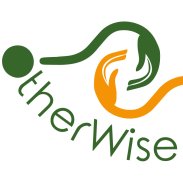Event
Cancelled - Indigenous knowledge systems and values
To our regret we have decided that the activities of next week cannot continue due to the Corona virus outbreak. We were looking forward to celebrate the lustrum week of OtherWise together, but with the situation now, this would not be ethically responsible. We hope to postpone these activities and to celebrate the lustrum another time.
---------------------------------------------------------------------------------------------------------
How do indigenous communities see the world and have knowledge about the (natural) world? As a part of the 20 year lustrumweek 'Imagine Otherwise', OtherWise organises an evening on indigenous knowledge and values at Vreemde Streken. We invited two representatives of indigenous communities in Surinam and the Maluku Islands and they will share their knowledge with us.
In our current society it is becoming clear that it is essential to reinmagine our relationship with nature and with each other. Our western viewpoint on how science and technology could solve our environmental crisis is very one-sided. And instead of re-inventing the wheel, there is so much knowledge already present in practices and traditions in indigenous communities that can inform us to create a more environmentally and socially just world. However, indigenous communities often face injustice in the form of landgrabbing, the ongoing effects of colonialism and being disregarded by their states.
This evening, Semuel Sahureka, founder of the Nusa Alifuru foundation will come and talk about the Alifuru and how they relate to nature and their land. The Alifuru are the native inhabitations of the Maluku Islands. He will also address the issue of losing land, as the Alifuru often need to sell land for economic reasons to logging companies.
Willem Koning (left on the picture* of the event), chair of the K'makah cultural foundation in Amsterdam, will talk about the Kalinja, the indigenous people of Surinam. In his talk he will refer to cultural differences, native languages and values, fake borders, muffled or altered historical reflections, tragic social whiplash on native societies from the colonial era and ecological colonial established effects. He will end the talk by inviting all attendants to participate in two traditional native dances, called Maraka and Sambura.
*On the picture are also: Hendrik Sommer and Jan Koning
